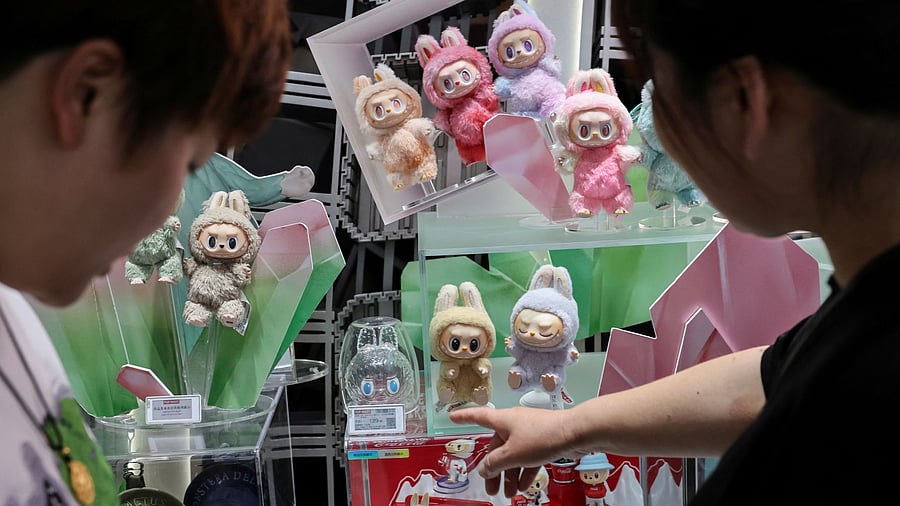
People look at Labubu dolls at the flagship store of Pop Mart in Shanghai, China.
Credit: Reuters Photo
A part of the Monsters series by Kasing Lung, an illustrator based out of Hong Kong, the Labubu plush dolls have taken over the world. These toys are considered, cute, creepy, or just fascinating, and they have almost attained celebrity-level status in many major economies. This Gen-Z craze goes beyond generations, with celebrities like Rihanna and Dua Lipa flaunting their Labubu's amongst many other famous stars.
From being just a fictional elf, it has now turned into a brand of its own. A vinyl face attached to its plush body, with pointy ears and an unsettling grin, its original personality given by its artist differs from the netizens' opinions of bizarreness. Apart from The Monsters, they are also seen in Big into Energy, Have a Seat, and Fall in Wild. The dolls also come in a variety of costumes and 'skins,' as the fans say, to cater to a wider audience.
What many do not know about, is that Labubu is mostly produced by Pop Mart, with much of their sales coming from blind boxes. Pop Mart's founder, Wang Ning, is one of the youngest billionaires with a sure-shot strategy for profits — which includes targeting people interested in collectibles and limited editions — but the demand did not gather in one night.
According to ChoZan, a China-concentrated research centre, the Labubu started to garner attention in late 2022, just as China recovered from the pandemic. The founder Ashley Dudarenok observed that the combination of chaos, yet lovable related to the people who were leaving their homes and minds. "It embodies anti-perfectionism," she said. Labubu was one of the national trends that went global, and it gained a fan-following soon enough!
In India, the dolls range from Rs 5,000 to more than Rs 15,000, depending on its rarity and demand. In 2024, the sales from outside mainland China amounted to approximately 40 per cent of total revenue. This trend is a signature example of how randomness and rarity impacts demand of a product, with Labubu continuing to be a roaring success. As many claim that the Labubu represent Chinese culture and creativity, this trend has crossed borders and entered hearts.
